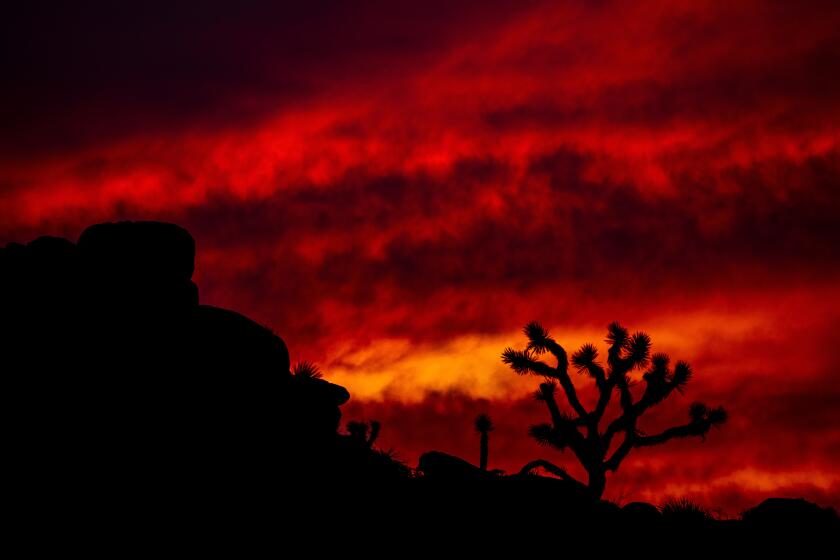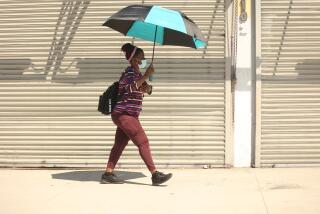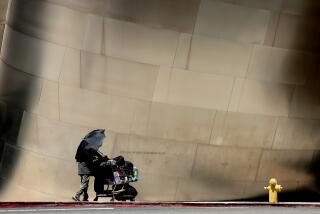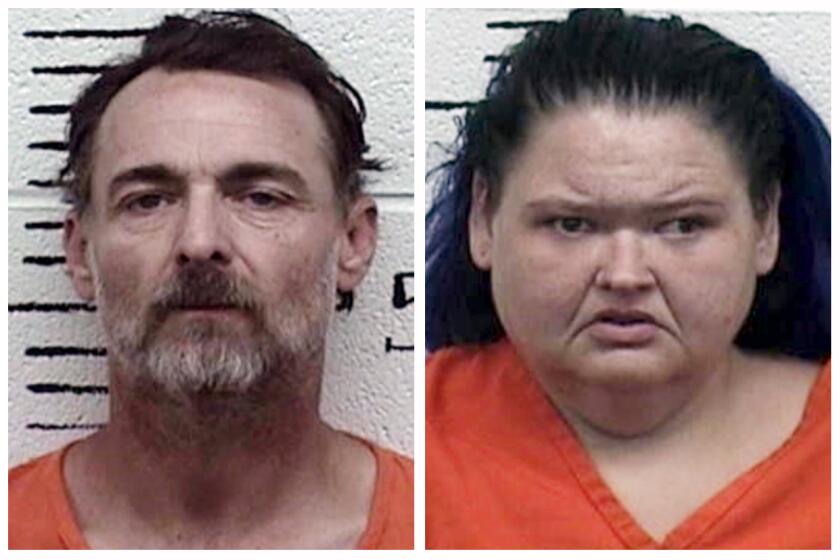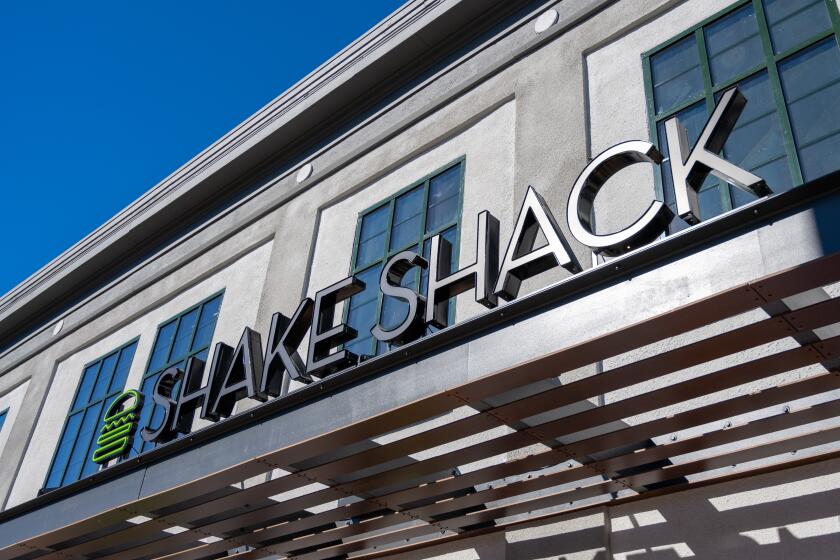Extreme heat wave slams Southern California. How bad will it get?
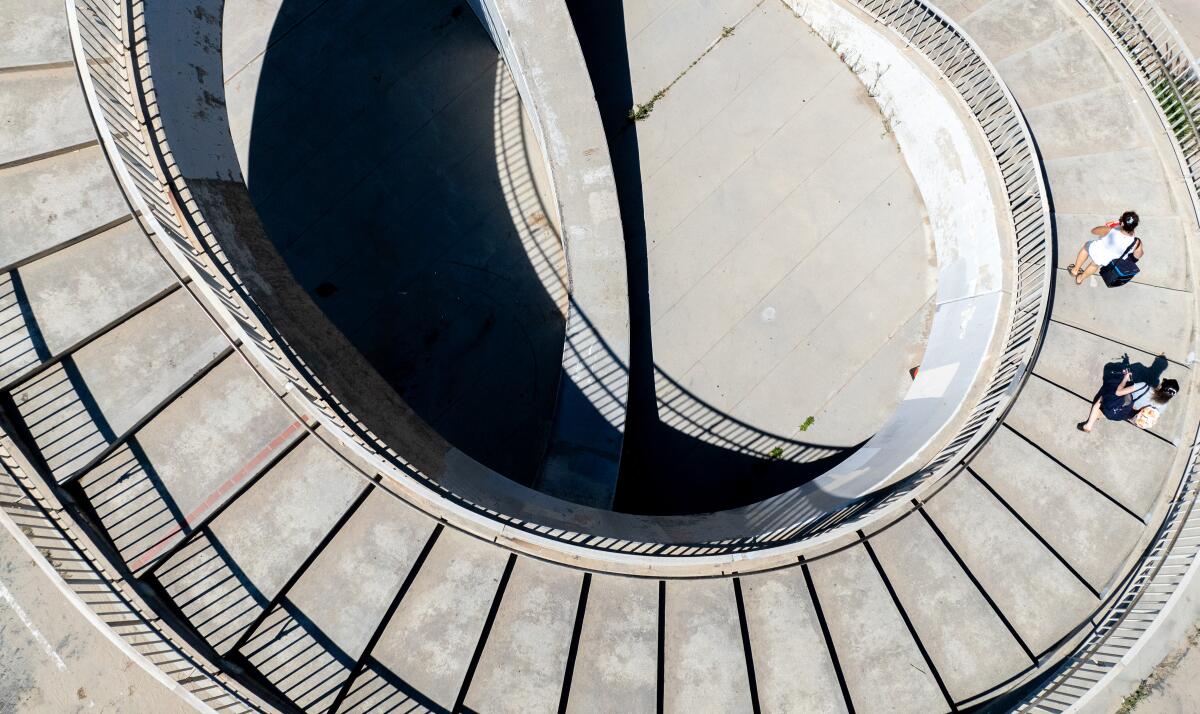
A broiling heat wave is headed to Southern California this week, bringing what is expected to be the hottest temperatures of the summer to a region that has already endured stifling weather.
After a generally mild August across much of California, forecasters say a high pressure ridge is expected to usher in temperatures between 5 and 10 degrees higher than normal along the coast and as much as 20 degrees above in inland communities. The most sweltering temperatures are anticipated to hit between Wednesday and Friday, said Mike Wofford, a meteorologist with the National Weather Service in Oxnard.
“We’re talking about a solid four days of heat,” Wofford said. “We’ve had three or four days of hot weather before but this one is hotter and longer than most of the other heat waves we’ve had.”
Temperatures could reach between 110 and 115 degrees in the San Fernando Valley while downtown Los Angeles is forecast to see temperatures in the mid to high 90s. Burbank, Woodland Hills, Pasadena, Santa Clarita and Palm Springs could experience triple-digit temperatures.
The early September heat wave comes on the heels of what UCLA climate scientist Daniel Swain predicts could go down as the hottest summer on record across much of California. Along the coast, it may not have felt scorching this summer, but it has been a different story across large swaths of the state.
“Most of California’s immediate coastline missed out on record heat this season (including some of the most densely populated portions of the SoCal megalopolis) — meaning that while a majority of California’s land area did indeed just experience a record-hot summer, the majority of California’s population likely did not (a pattern we’ve seen repeated in several recent years),” Swain wrote in a post on his Weather West blog.
AI developers need to be more transparent about their energy demands and how they will power their models.
The weather service issued an excessive heat warning from 11 a.m. Wednesday until 8 p.m. Friday for most of Los Angeles County, cautioning the public of peak temperatures reaching 95 to 110 degrees. Overnight temperatures in the 70s and 80s aren’t expected to bring much relief from the heat.
Temperatures in the mid and high 90s are expected in Long Beach, between 105 to 110 degrees in the Antelope Valley and between 100 and 105 degrees in Pasadena and Burbank, Wofford said. It could reach 106 degrees in Santa Clarita and 118 degrees in Palm Springs by Thursday.
“In terms of this summer, it’s going to be the hottest we’ve seen or close to it,” he said.
Mayor Karen Bass announced this week that hundreds of cooling centers will be open through Friday across Los Angeles, including “climate stations” on Skid Row where people will have access to shade, seating and cold beverages. Residents can find a list of cooling centers and “climate stations” online.
In 2020, there was a heat wave right around this time of year that brought temperatures up to 120 degrees in Woodland Hills, traditionally the hottest place in L.A., 111 degrees in downtown L.A. and 114 in Burbank, according to Wofford. This heat wave is expected to bump up against those numbers but is not expected to break those records, Wofford said.
Death Valley, the national park known for its sweltering temperatures, recorded its hottest month on record in July. The high pressure ridge this week is expected to bring temperatures in the park up to 118 degrees by Thursday and Friday, just down slightly from the average temperature of 121.9 degrees experienced in July.
Still, other parts of California might get close to record-setting temperatures.
A new study reveals that the icons of the Mojave Desert are experiencing much different conditions from what they had in the early 20th century, and that those conditions are changing the frequency of their reproductive activity.
By Thursday and Friday, temperatures in the Inland Empire could be as high as 112 degrees. Inland Orange County is expected to linger in the 90s and inland swaths of San Diego County could reach up to 102 degrees, said Philip Gonsalves, a meteorologist with the National Weather Service in San Diego.
Officials are also warning of increased fire danger during the sweltering heat in Southern California. But the silver lining, if there is one, is that Santa Ana winds won’t accompany the extreme temperatures, reducing the risk of wind-blown, fast-moving wildfires even as the Southland broils.
“There’s gonna be a narrow strip of real estate near the beaches where temperatures will be below 90,” Gonsalves said. “This is because there’s still going to be a marine layer present and we’ll still have a sea breeze in the afternoon whereas if we were in a Santa Ana event there would be no sea breeze.”
Temperatures are expected to go down by about 3 to 6 degrees by Saturday but remain above normal through the rest of the weekend, to around 105 degrees in the valleys and the low to mid-90s for downtown L.A. By Sunday and Monday, it’s expected to cool down another 2 to 4 degrees, according to the National Weather Service.
Officials remind Southern Californians to stay hydrated and to not leave any pets or children inside their cars because it could get dangerously hot. Vulnerable populations, including pregnant people, unhoused individuals, children, the elderly and those with chronic illnesses are most at risk for heat-related illness.
Wofford cautioned against doing physical activity, such as hiking, during the day, suggesting people instead do so very early in the morning or very late in the evening.
“This would not be the best week to be doing stuff like that,” he added.
Extreme heat waves can be deadly for certain populations — in particular, for vulnerable groups who don’t have access to shade in their neighborhoods or air conditioning in their homes, said David Eisenman, professor of medicine and public health at UCLA and co-director of the Center for Healthy Climate Solutions.
Those individuals should make sure to draw the shades in their homes early in the day to reduce sun exposure, Eisenman said, and to drink water, cool down in the shower and use fans to stay comfortable, or visit a library or cooling center.
“We know that extreme heat causes more deaths than any other natural disaster,” he said. “The problem is we don’t look at [heat events] in the same sort of frightened way. We’ve also been slow as a nation to take extreme heat seriously as a disaster.”
More to Read
Sign up for Essential California
The most important California stories and recommendations in your inbox every morning.
You may occasionally receive promotional content from the Los Angeles Times.

